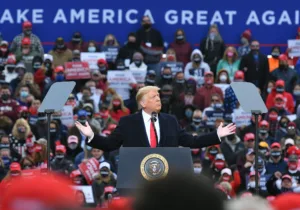President Obama danced the Tango literally and figuratively while in Argentina. The figurative dance was his “apology” as some described it for supposed USA acquiescence to the 1970s Dirty War by its military dictatorship.
Obama’s vague words never mentioned apology and some leftist critics were sorely disappointed. Instead, before visiting a memorial to Dirty War victims he said:
We have to have the courage to acknowledge when we don’t live up to the ideals that we stand for. And we’ve been slow to speak out for human rights and that was the case here.
There’s a popular school of thought that the USA has operative control over nearly all world events, especially if they’re bad. This school imagines the USA facilitated Argentina’s 1976 military coup and greenlighted its various crimes and repressions. Of course the facts are more complicated and interesting.
Argentina was in upheaval in the 1970s. A military regime gave way to elections that facilitated the return from Spanish exile of Juan Peron, the aging and legendary military officer, populist, sometimes crypto-fascist, and fomenter of coups who had himself gained election as president in the 1940s and 1950s, initially partnered with his even more legendary wife, Evita. Peron died soon after his return to power, replaced by his then widow, Isabel, who was feckless and lacked Evita’s political magnetism.
The military overthrew Isabel in early 1976, in what had to have been one of the most expected coups in history. At age 10, I well recall anticipating the coup, as my mother had a friend visiting Argentina who worried how the coup might affect her travel plans. Argentina was already in a state of near civil war, as leftist guerrillas, some of them descended from a form of Peronism, had for years waged a vicious campaign of assassinations, bombings and economic disruption, which would kill over a thousand, including a USA diplomat and executives of USA firms.
Here’s the recall of those times in Henry Kissinger’s memoir:
At the time, the so-called Southern Cone of South America was under violent attack from radical, antidemocratic, and antimarket forces. In Argentina, the collapse of democracy ultimately ran full circle and brought back Juan Perón after twenty years of exile, with his history of hostility toward the United States and market economies. He was being challenged by even more radical forces dedicated to violence who, with assassinations and kidnappings, were seeking to drive Argentina to ungovernability as a prelude to their takeover. Similar conditions existed in Uruguay. Peru, of course, was already dominated by leftist, authoritarian, antimarket military leaders, as described earlier.
Then Secretary of State Kissinger is the villain for believers of USA complicity in Argentina’s troubles. Not long after the coup, Argentina’s foreign minister visited Washington, DC. After declaring his government’s first priority was to crush terrorism, Kissinger responded: “We are aware you are in a difficult period. It is a curious time, when political, criminal and terrorist activities tend to merge without any clear separation. We understand you must establish authority.” He added: “If there are things that have to be done, you should do them quickly. But you should get back quickly to normal procedures.” Several months later Kissinger told the Argentine: “Look, our basic attitude is that we want you to succeed.” He explained: “What is not understood in the United States is that you have a civil war. We read about human rights problems but not the context. The quicker you succeed the better.”
In 2004 a USA official who had attended Kissinger’s 1976 meeting with the Argentine recalled Argentina was then “virtually ungovernable.” He insisted: “To interpret what he [Kissinger] said to [Foreign Minister] Guzzetti as a green light for human rights violations doesn’t stand the test of history.” Kissinger of course left office in early 1977 with the accession of Jimmy Carter, whose administration robustly critiqued the Argentine dictatorship, which killed or disappeared, imprisoned and tortured not only thousands of leftist guerrillas but also many other non-combatant regime opponents, real or perceived. The role of the Catholic Church in Argentina, and of Pope Francis, who was a Jesuit leader during the junta years, has been widely debated.
The unpopular Argentine military dictatorship tried to revive domestic public support by seizing the Falkland Islands from Britain in 1982. Argentines did support the invasion, until the British counter invaded and humiliated the Argentine military. Soon after the depised dictatorship was overthrown, replaced at long last by a decent and elected civilian regime. She will never be thanked, but Margaret Thatcher deserves credit for precipitating Argentina’s return to democracy. So too does President Reagan, for quietly arming and supporting the British Falklands War. Less creditable is Reagan’s pre-invasion phone appeal to Argentina’s president imploring him not to proceed. Reagan gave up when the general only listened politely. He should instead have more effectively warned the despot that the USA would ensure Britain’s victory and the junta’s demise.
As to Kissinger, he barely mentions Argentina in his memoir. The same is true for Walter Isaacson’s critical biography. Argentina was not a major focus for the Ford Administration. At the time, most of Latin America was under dictatorship. Kissinger was dealing with reality, not green lighting later atrocities by the Argentine junta. The Carter Administration condemned the Argentine military, with justification, while opening relations with Communist China, a then totalitarian police state that had murdered millions of its citizens. Few today criticize USA relations with China then or now. Similarly Obama has little critique of Cuban Communism, whose victims across decades far outnumber the slain of Argentina’s old junta. Global statecraft is rarely a morally consistent tango.







 Sponsor a student for Christianity & National Security 2024
Sponsor a student for Christianity & National Security 2024